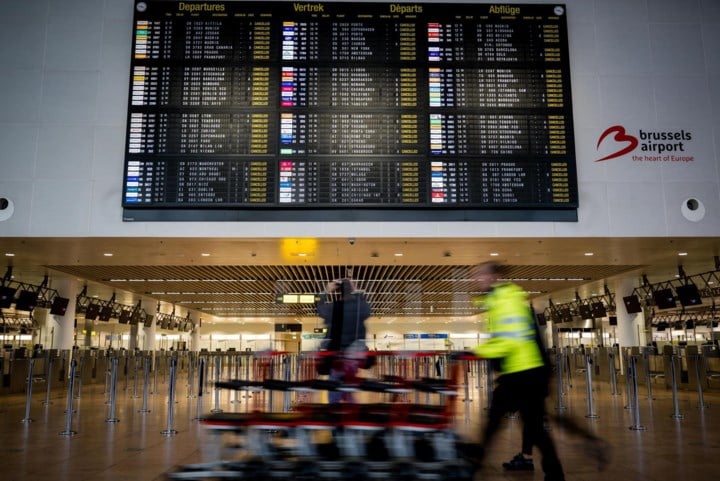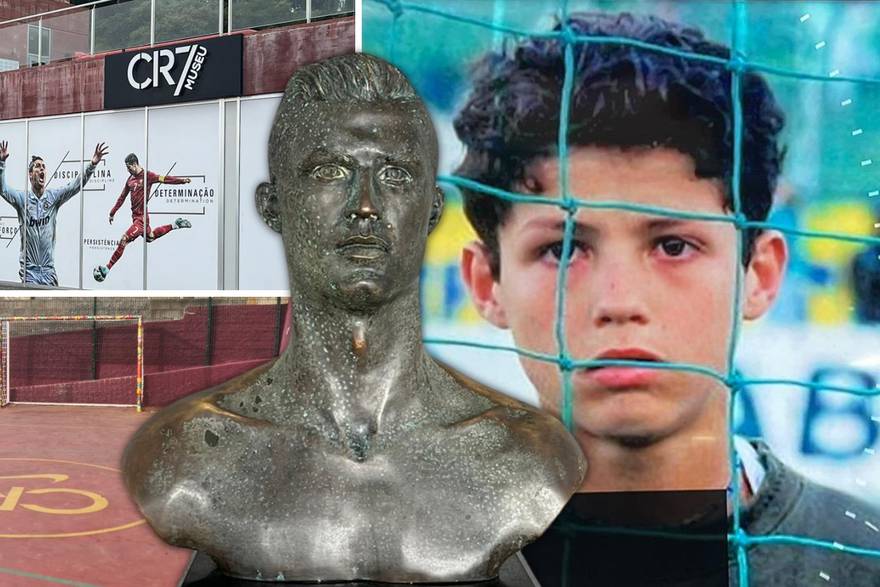The disease is a love school, God does not leave us alone. His unexpected wish in the square

Francis greets the believers at the end of the Mass for the jubilee of the sick and the health world: « Thank you very much! » First he prays, confesses to the basilica and crosses the Holy Gate. Archbishop Fisichella reads the Pope’s preaching: « Not to throw away those who are fragile » and their pain, far from our lives. The Bishop of Rome is convinced that it will share with the sick, at this moment, « the experience of wickedness, a sense of weakness, dependence on others »
Suddenly, at the end of the jubilee Mass for the sick and the world of health, Pope Francis’s foolish achievement in St. Peter’s Square was the foolish achievement. In a wheelchair, accompanied by his personal nurse, Massimiliano Strappetti, who takes him to the altar, after the last blessing of the celebration, the Archbishop of Fisichella, addresses the endless crowd a brief greeting: « Joyful Sunday, thank you very much! » In the atmosphere of emotion of all those present in the square, the readers then convey his thankful message. Francis greets « lovingly those who participated in this holiday and thanks to them for praying to God for his health, hoping that the jubilee pilgrimage will be rich in fruit. » He then gives the apostolic blessing to « loved ones, sick and suffering, as well as all believers gathered in the square today. »
The pope, in healing, has a number of things in common with the twenty thousand pilgrims, many of whom are sick, gathered in St. Peter’s Square for the Jubilee Mass of the sick and the world of health. And he confesses this through the preaching, read for him by the delegate, the Archbishop Rino Fisichella, the pro-prefect of the underlying Evangelization Section in the world of the respective department. Prior to reading, Monsignor Fisichela points out that Pope Francis « is particularly near, that he participates, as very sick, in this Eucharist, not through television », as expected. All believers applaud emotionally. Whereas the Pope shares « the experience of weakness, the feeling of dependence on others in many things, the need for support ». It is not always easy, but it is a school in which we teach every day to love and allow others to love us, without seeking and refusing, without regret and without despair. Grateful to the Lord and our brothers for the good we receive, abandoned and confident for what is coming.
Homily
« Look, I do something new: Are you standing now, you don’t notice it? » (Is 43.19). There are the words that God, through Isaiah Prophet, addresses the people of Israel in exile, to Babylon. For the Israelis it is difficult time, it seems that everything is lost. «
These are the first words of the Pope’s Homelia, to the crowd that filled the Vatican Basilica, where today the jubilee of the sick and the world of health was celebrated. Jerusalem – Francis continues – was conquered and destroyed by the soldiers of King Nabucodònosor of the people, interned, had nothing to do. The horizon seemed closed, the dark future, the hopes extinguished. Everything could make the exiles to be released, to surrender, to feel unbelievable to God.
This, the situation in which the Israelis are, as Isaiah Prophet describes us…
Something new is born
However – Pope recalls – it is in these circumstances that the invitation of God is to understand something new, which is arising. Not something that will happen in the future, but that is already happening, is germinating as a seedling.
But what is it about? What can arise, or more precisely what may have already sprouted on a deserted and desperate land like this?
A new people are born!
What you are born – explains Francis – is a new people. A people who, after collapsing the false security of the past, reveals what is fundamental:
“… To stay united and walk together in the light of God (see IS 2.5). A people that can rebuild Jerusalem because, away from the Holy City, with the already ruined temple, no longer being able to celebrate the solemn liturgy, has learned to meet God in another way: in the turn of the heart (see Jer 4: 4), needy through deeds of mercy. «
Renew our faith in God
The Pope then recalls that this is the same message that, in a different way, we can understand in the Gospel passage (see Jn 8: 1-11). However, here is a man, a woman whose life is destroyed: not by a geographical exile, but by a moral punishment. It is sinful and, therefore, far from the law, sentenced with exception and death. It seems that there is no hope left for him. But God does not abandon him:
« Indeed, at a time when the torturers are tightening the stones in their hands, it is there, Jesus enters into her life, protects her and removes her from their violence, giving her the opportunity to start a new life: » Go « – » You are free « , » You are saved « (see v. 11). »
Renew faith in God
With these dramatic and touching stories – the Pope continues – the liturgy invites us to renew it today, into the journey of Lent, our religion in God, who is always close to us to save us.
« There is no exile, no violence, no sin, no other reality of life that can prevent him from staying in our door and knocking, ready to get in as soon as we allow it (see Revelation 3:20). Especially when trials become more difficult, his grace and love keep us even more strongly. »
To trust the Lord every pain
Sisters and brothers – Pope continues – we read these texts as we celebrate the jubilee of the sick and the world of health, and of course the disease is one of the most difficult and harshest trials in life, in which we touch it as fragile as we are. It can make us feel like people in exile, or like the woman in the Gospel: no hope for the future. But this is not the case.
« Even in these moments God does not leave us alone, and if we are left in hand, exactly where we miss the strengths we can experience the comfort of His presence. He himself, made man, wanted to divide our evil (see Fil 2: 6-8), so he knows what suffering is (see Is 53: 3). and tenderness ”.
But not only that. With his faithful love, we encourage us to become for one another, « angels », messengers of his presence to the point, how often, for both those who suffer and for those who help, the bed of the sick can become a « sacred place » of salvation and redemption.
Everything is a gift from God
The Pope then greets doctors, nurses and health personnel members. As you take care of your patients, especially those fragile – remembers – God offers you the opportunity to constantly renew your life, nourishing him with gratitude, mercy and hope (see Bula spes non confundit, 11). It calls you to illuminate it with humble consciousness that nothing is ready and that everything is a gift from God:
« What is it worth feeding on the humanity that lives when, leaving aside appearances, remains what matters: small and large gestures of love. Allow the presence of the sick to enter your life as a gift, to heal your heart, cleaning it of anything that is not charity and warming it out with shining and sweet fire. »
In the hospital room can be heard the voice of God!
As Homelia approaches the end, the Pope continues to address the sick: “With you, dear sisters and sick sisters, at this moment of my life many things: experience of illness, wickedness, dependence on others, the need for support:
« It is not always easy, but it is a school in which we teach every day to love and love us, without seeking and contradicting, without regret, and without despair, grateful to God and our brothers for the good we receive, abandoned and confident about what comes. You don’t notice it? ‘
Society that does not accept suffering, is cruel and inhuman
The Pope remembers Benedictin XVI – who gave us a beautiful evidence of tranquility at the time of his illness, writing that « the mass of being human is largely determined in relations with suffering » and that « a society that is unable to accept suffering (…) is cruel and inhumane » (Encyclical letter Spellvi, 38). True: coping with suffering together makes us more human, and sharing pain is an important stage in every path to holiness.
At the end of Homelia, a touching greeting
Dear, let’s not take away our lives from those who are fragile, how unfortunately sometimes acts today a kind of mindset; Not to avoid pain from our environments. Better to get better into the opportunity to grow together, to cultivate hope thanks to the love that God first poured into our hearts (see ROM 5.5) and that beyond everything, it is what remains forever (see 1kor 13.8-10.13).
Republic of Albania; – Vatican




